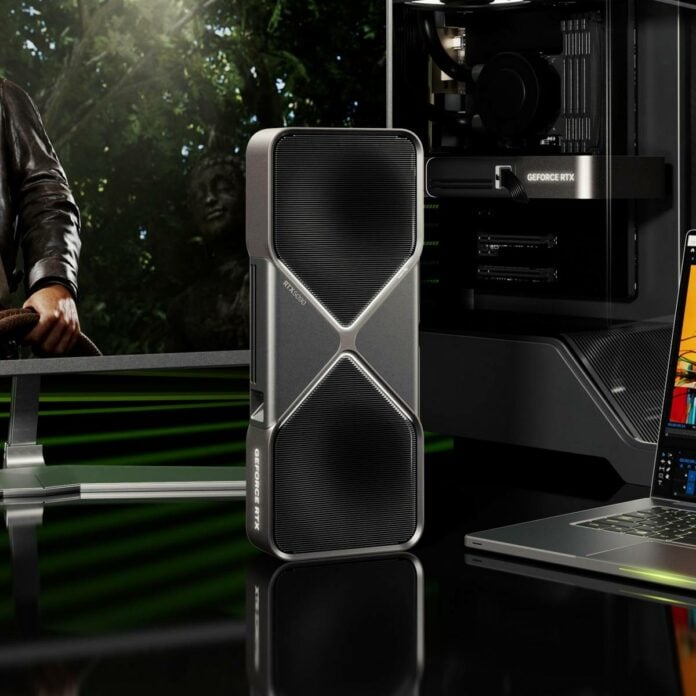Nvidia has shared some new benchmarks of its upcoming RTX 50 Series GPUs showing the rasterised uplift compared to last generation. Now, we can see the real 15% to 32% improvement through the AI fog.
The brand has released a range of slides and performance metrics among which we can spot two benchmarks starring Resident Evil 4 and Horizon Forbidden West. The special thing about these tests is their lack of frame generation and DLSS 4. This should give us a more apples-to-apples comparison between RTX 40 Series and RTX 50 Series.
Without true metrics along the Y axis, Nvidia makes it particularly difficult to see the exact difference. We’re sticklers for details, though, so we’ve measured the pixel count (Shift + M in Gimp) to determine what you can expect, at least in the eyes of Team Green with its cherry-picked internal numbers.
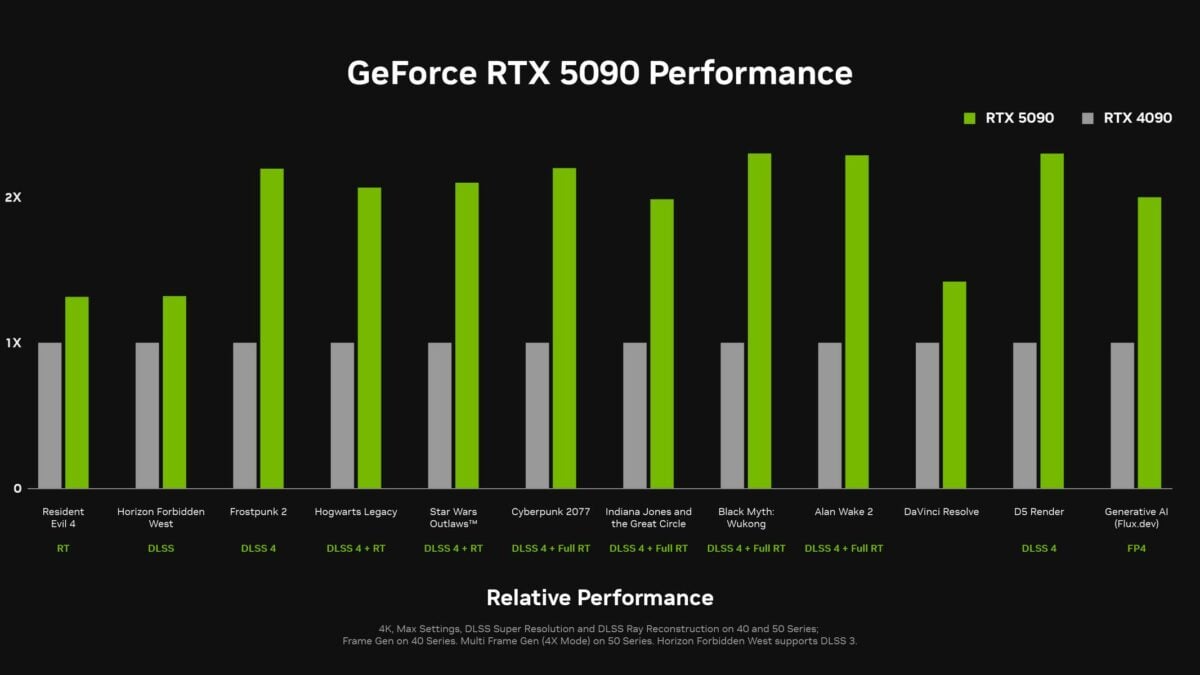
Until our review lands with a larger sample size and clearer comparisons (keep your eyes peeled), these benchmarks show that RTX 5090 is roughly 32% faster than the RTX 4090 when put on equal footing. This makes it less impressive when factoring in its 25% higher price tag – $1,999 vs $1,599 for its predecessor. And we are not even talking about the expensive custom models.
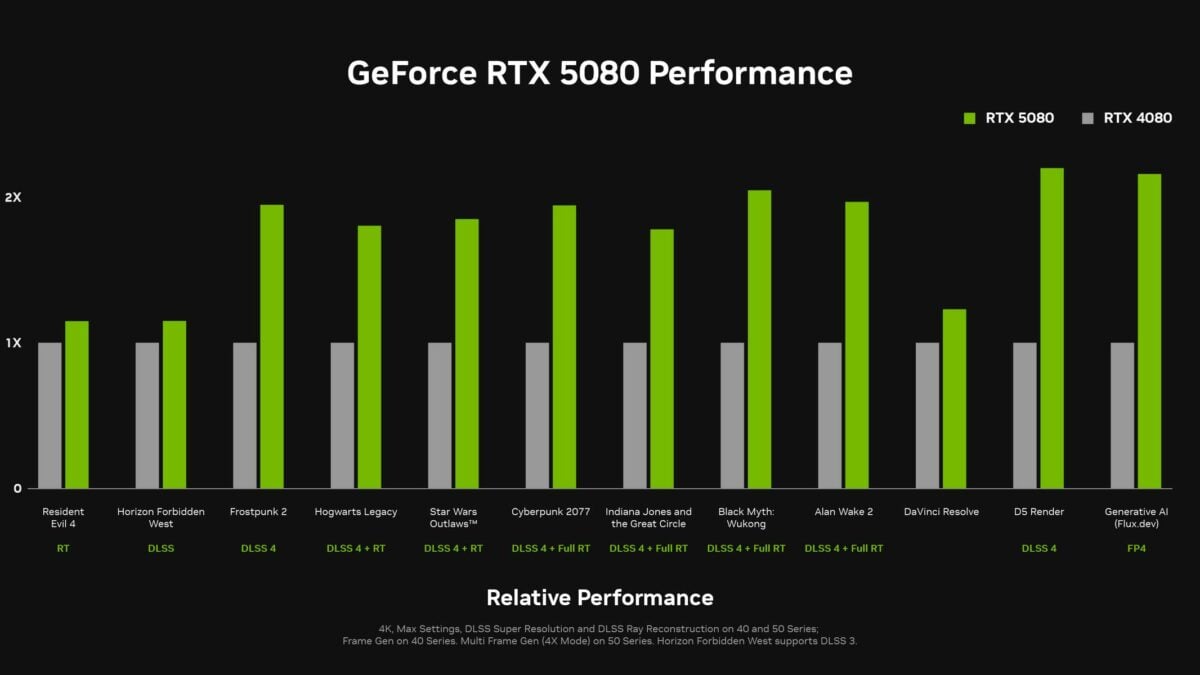
RTX 5080 on the other hand is only 15% faster than the RTX 4080, marking the least uplift in this list. That said, this time the price difference is a net positive, as RTX 5080 comes 16% cheaper at $999 than the 4080’s original $1,199 MSRP. Let’s call it acceptable.
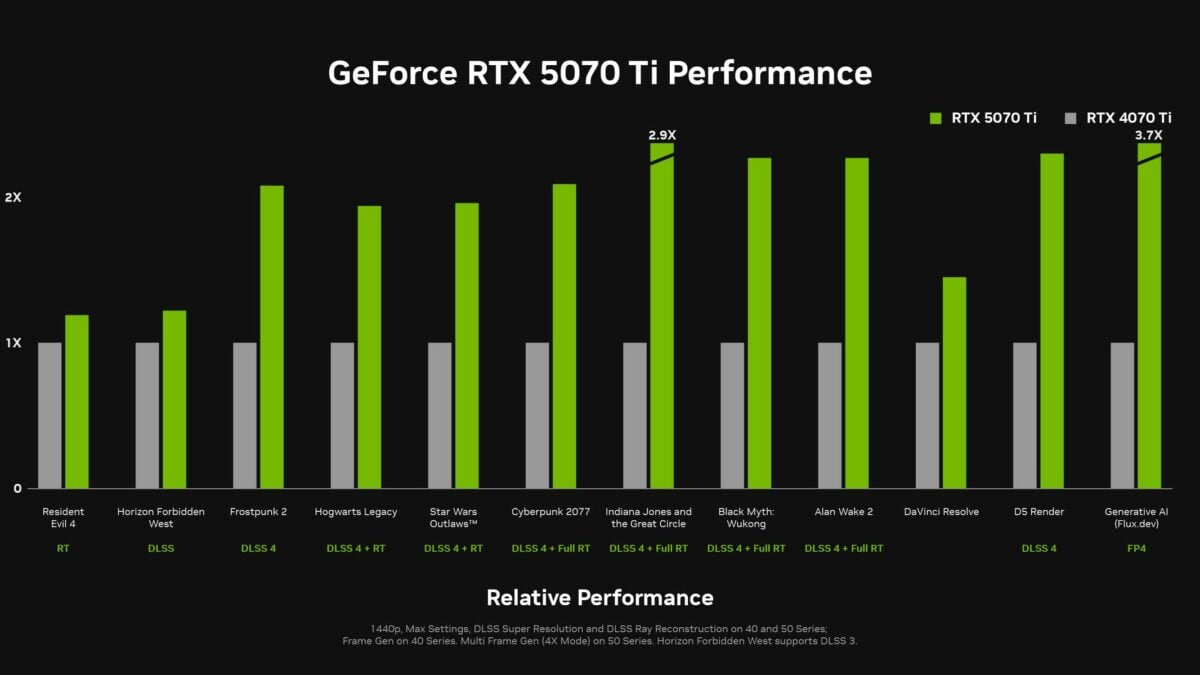
As for RTX 5070 Ti against RTX 4070 Ti, things depend on the game, ranging from 19% in RE4 to 22% in Horizon. Again, adding the $749 MSRP into the equation shows 6% reduction compared to the 4070 Ti’s $799. Just keep in mind that these are launch prices and you may find better deals on RTX 40 Series cards.
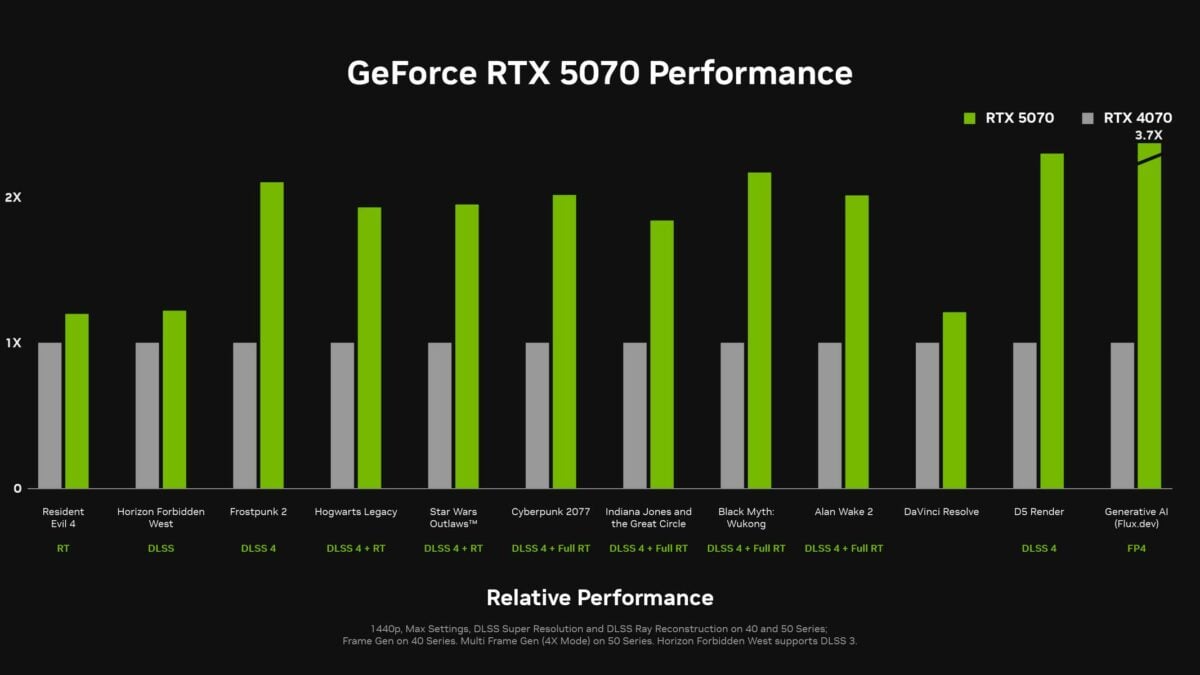
Lastly, RTX 5070 is 20% faster in RE4 and 22% in Horizon compared to RTX 4070. While not as head-turning as Jensen’s claim of RTX 4090 performance, this one offers the best value out of the bunch when factoring in price. At $549 it is 8% cheaper than the 4070’s $499 tag. And with DLSS and frame generation backing its raw power, this mid-ranger shapes up to be a winner. No wonder Nvidia chose to open the RTX 50 unveiling with it.
With all this in mind, the RTX 50 Series real weapon is DLSS 4. Improved upscaling, x3 frame generation, better handling of ray-traced lighting, and the possibility to upgrade games to the latest DLSS version are all important aspects beyond the base frame rate. We shall cover these in detail on future occasions.


